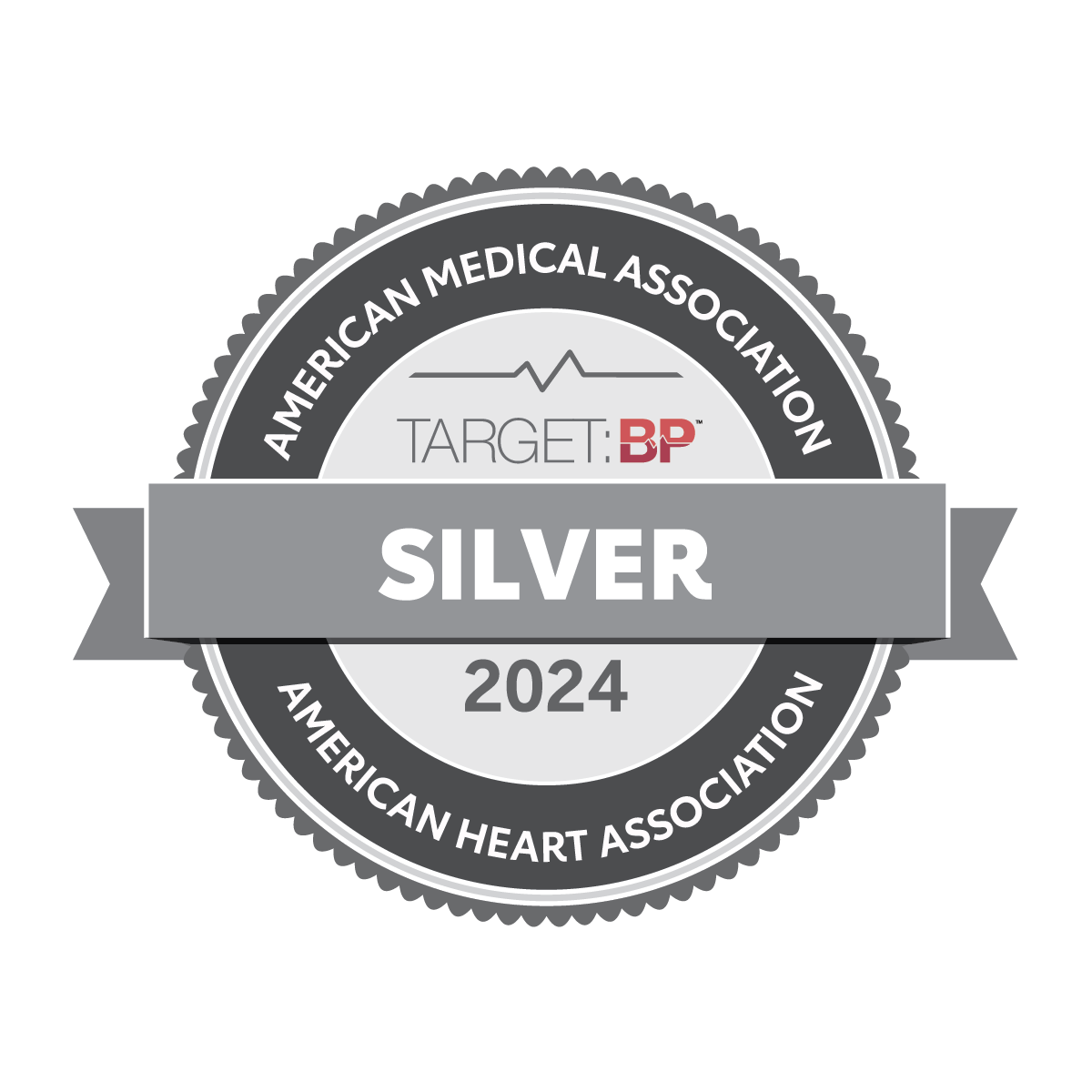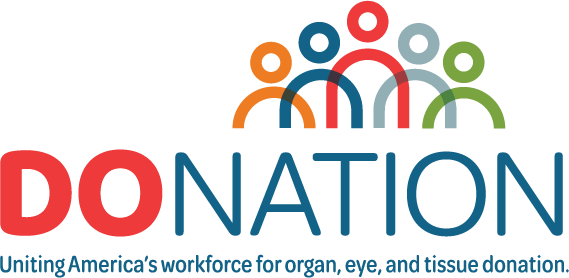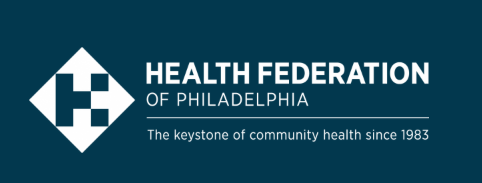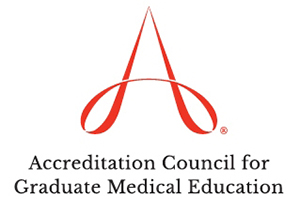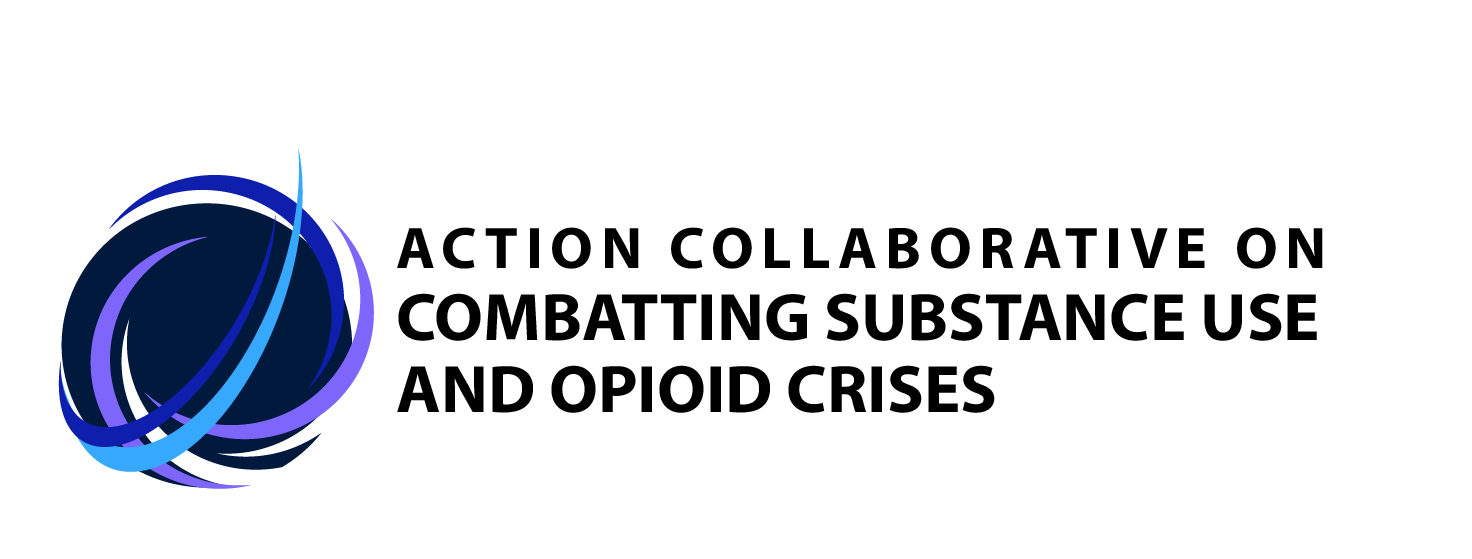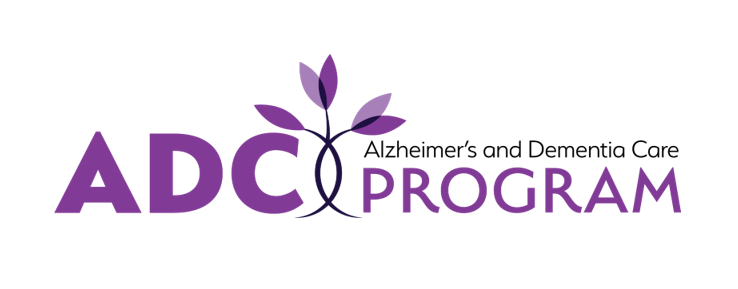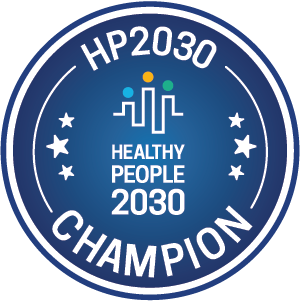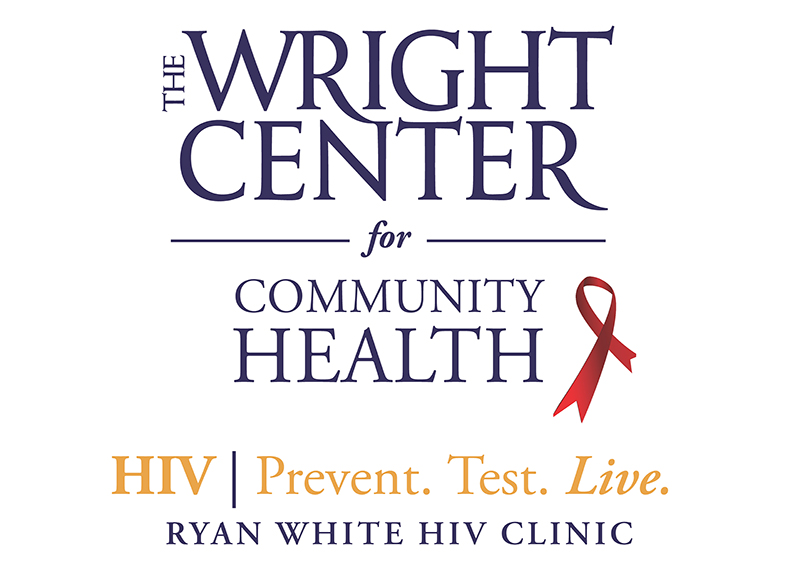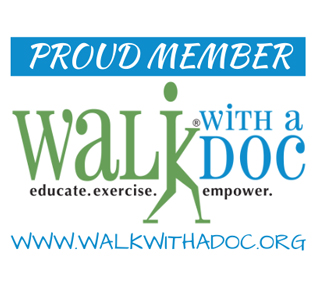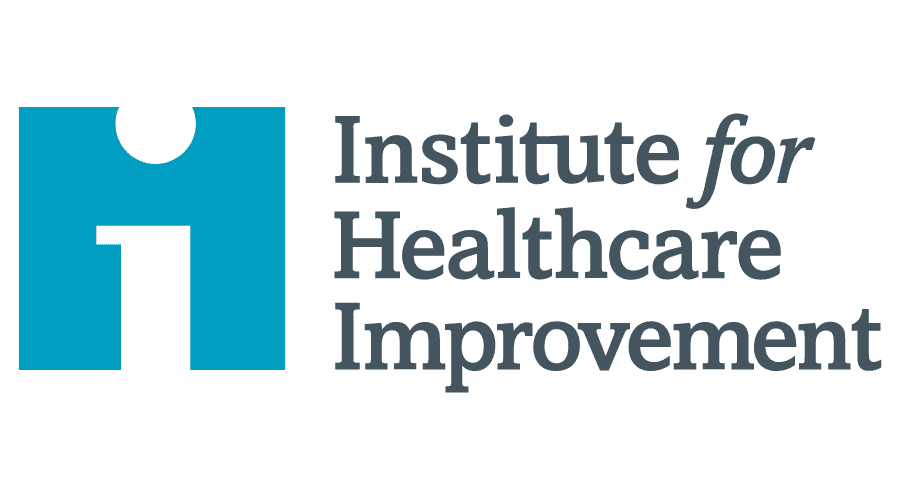Research & Scholarly Work
Overview
In accordance with ACGME common program requirements, as well as the spirit of academic medicine, The Wright Center provides a robust scholarly activity curriculum brought to life through the opportunities that we provide to our residents, fellows, and the scholarly work that they produce.
A core belief of The Wright Center is that it takes far more than medical knowledge to create the next generation of physician leaders. Our scholarly activity curriculum has application in all ACGME areas of competence.
Our residents and fellows acquire the skills needed to contribute to respected literature and thereby come to appreciate its intrinsic value in practice and quality of care. In teaching our residents and fellows the skills necessary for evidence-based medicine, The Wright Center shapes curiosity into an appreciation for lifelong learning. By graduation, each resident and fellow has learned to fuse quality improvement evidence with practice-based learning – the driving force for which all research is initiated and investigated.
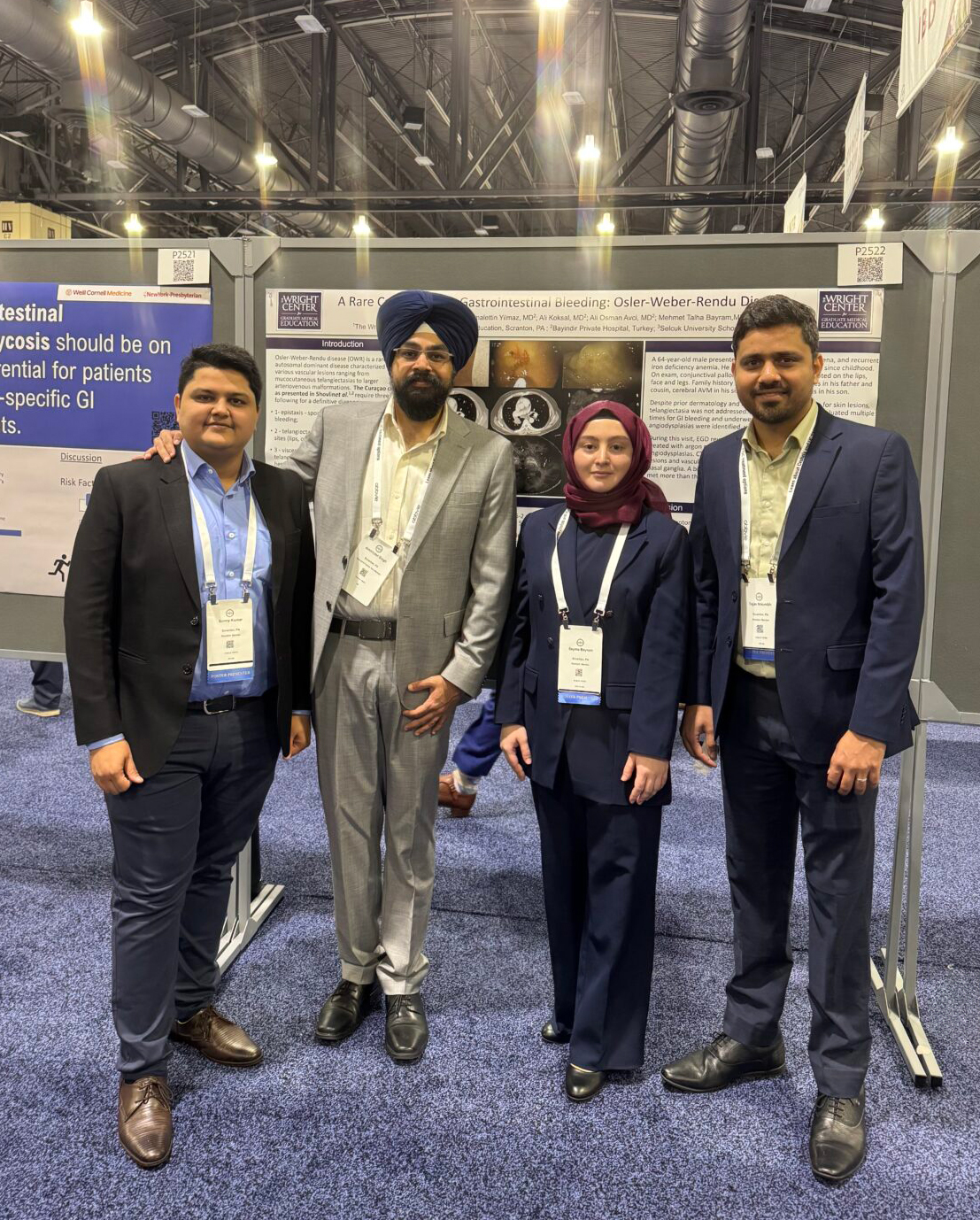
Internal medicine resident physicians presented their poster at The American College of Gastroenterology Annual Scientific Meeting in Philadelphia, Pennsylvania, in 2024.
Scholarly Activity leadership roles have been created for residents to fill who are experienced in research, presentation/ publication, and other forms of scholarship. These leaders act as liaisons between the resident and fellow body, program faculty, and GME administration to support the development and sharing of scholarly activity at The Wright Center for Graduate Medical Education. The committee currently consists of one chief resident of scholarly activity and two resident leaders.
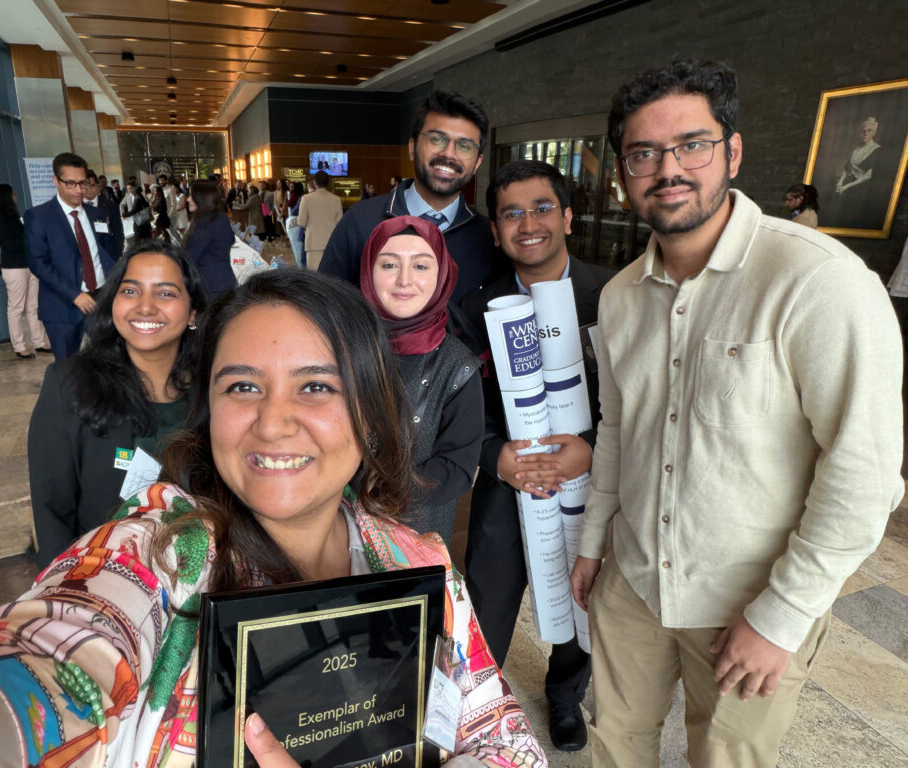
Resident physicians presented and competed at the PA-ACP Eastern Region Doctor’s Dilemma and Poster Competition in Scranton, Pennsylvania, in 2025.
The Community-Oriented Primary Care (COPC) research project requirement allows residents to build skills in problem identification, problem-solving, and need-based intervention on the community level. Residents work with interdisciplinary teams within their community health center setting to identify the needs of relevant stakeholders, plan and develop an intervention, and implement their intervention. This is an opportunity for residents to contribute to the increased well-being of the communities they serve, particularly the underserved populations treated within their community health center setting.
Beyond their daily complex medical needs, community health center patients typically face social and societal challenges that can be addressed in partnership with community stakeholders. In the COPC model, practitioners are able to leverage community partnerships to enhance patient care leading to increased quality.
View Institutional Review Board to learn more about the Wright Center for Graduate Medical Education IRB (WCGME-IRB).
Please reach out to [email protected] with any questions.
Program Outline
Year One: Case Reports and COPC Start-up
All residents will learn to recognize unique and unusual patient presentations and to develop these interesting scenarios into detailed case reports. Many will go on to present their findings at local and national forums.
Residents form small groups, assess community needs, perform a preliminary literature search, identify needs to be addressed, develop a hypothesis, develop specific aims, propose intervention strategies, research questions, and research an implementation plan. Core faculty are engaged in the project, and the group identifies partners within their community health center (CHC). A preliminary research proposal is drafted by the group and reviewed by faculty.
Year Two: COPC Project: IRB Submission and Project Implementation
During their second year, residents will learn to critically evaluate clinical operations processes to identify inefficiencies, safety concerns, unidentified needs, and other opportunities for improvement. Each resident will analyze the issue detected and develop a quality improvement plan that will be tested and implemented to remedy the initial problem.
Residents must apply to both WCGME and other applicable IRBs for approval. The local health center, and any other partnering organizations for your project, may also require submission to their IRB, or a research committee. Local research committees may require multiple levels of engagement and will be engaged by COPC teams (including faculty). This experience educates residents on best practices for conducting research and provides a basic understanding of the guiding federal regulations.
Year Three: COPC: Analysis and Presentation
Resident scholarly activity includes engagement in research activities, analysis of disease processes, systems-based processes, and presentation of outcomes via publication or presentation in a scientific forum (ACGME, 2012). Research activities may be completed through the development of an abstract for submission to a scientific medical journal or conference, local grand rounds presentation, or presentation of a research study to local or national medical communities.
Residents compile and discuss results, evaluate outcomes, draw conclusions, and provide recommendations. A poster is prepared and submitted for presentation/publication.
Recent Publications and Presentations
Silent Threat: Cardiac Tamponade as a Rare Complication of Severe Hypothyroidism
American Heart Association Scientific Sessions
New Orleans, Louisiana | November 7-10, 2025
Dr. Srikar Bathi; Dr. Kavitha Singaravel; Dr. Surpur Swapnil; Dr. Charles Deck
Atypical Presentation of Euglycemic DKA in SGLT2 Inhibitor Use Precipitated by Ketogenic Diet
American Society of Nephrology (ASN)
Houston, Texas| November 7, 2025
Dr. Kavitha Singaravel; Dr. Srikar Bathi; Dr. Anagha Teggihal; Dr. James Cortese
Brachial Amyotrophic Diplegia: A Case Report
American Academy of Physical Medicine and Rehabilitation (AAPM&R) Annual Assembly
Salt Lake City, Utah | October 22-25, 2025
Dr. India Kohli; Dr. Bradley Bierman; Dr. Raj Patel
Severe Constipation as a Rare Manifestation of Deep Vein Thrombosis in May-Thurner Syndrome
Pennsylvania American College of Physicians (PA-ACP) Eastern Region
Scranton, Pennsylvania| October 18, 2025
Dr. Shivangi Harshadbhai Patel; Dr. Harini Natvarbhai Patel; Dr. Ivan Cvorovic

